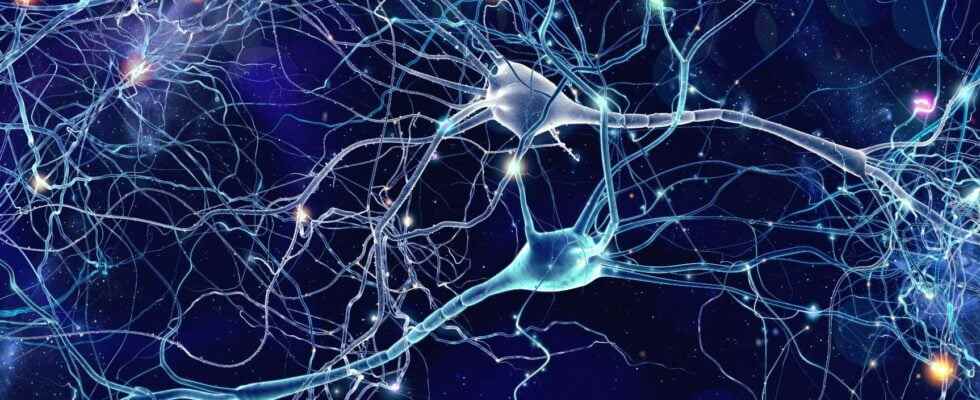You will also be interested
[EN VIDÉO] The astronomical and space events not to miss in 2022 The year 2022 will be marked by major space and astronomical events almost every month, a small recap of the most important is always welcome!
The human body was built on Earth, where the gravity nails us to the ground. An extended stay in space, a foreign environment for us Earthlings, force him to adapt. Scientists are carefully studying this phenomenon and its consequences.
To limit the loss of mass bone and muscle, astronauts of the international space station (ISS) do exercises physical between two scientific experiments. I’weightlessness also acts on the brain. For the first time, the follow-up of twelve astronauts who traveled to the ISS has shown that their brains have somehow “rewired”. The study appeared in Frontiers in Neural Circuits.
Lack of gravity alters the brain
For this collaborative project between the European Space Agency (ESA) and Roscosmos, twelve astronauts spent MRIs before and after their stay in space. To study the structure and function of the brain, post-return MRI was done with a special technique called tractography which highlights neural pathways in the brain. ” Our study is the first to use this specific method to detect changes in brain structure after space travel. “, explains Floris Wuyts, researcher at the University of Antwerp (Belgium).
Because of the modifications, the researchers observed several of them. First in the motor region of the brain where the connections between neurons have changed. ” Motor regions are the centers of the brain where the commands of movements are initiated. In weightlessness, an astronaut must adapt his travel strategies in relation to the Earth. Our study shows their brains have rewired, so to speak explains Andrei Doroshin, the first author of the study. This rewiring persists more than seven months after the astronauts return to Earth.
The corpus callosum, the junction between theright and left hemispherealso appeared different in the astronauts, but the scientists understood that it was not an intrinsic change in the corpus callosum but the dilation of the adjacent cerebral vesicles which compress it a little more than usual.
As for muscle and bone mass, understanding the cerebral modifications due to weightlessness could allow the establishment of corrective measures, such as to fight against melting muscles. Humanity aims to stay in space ever longer and these prolonged space trips risk putting strain the human body.
Interested in what you just read?
